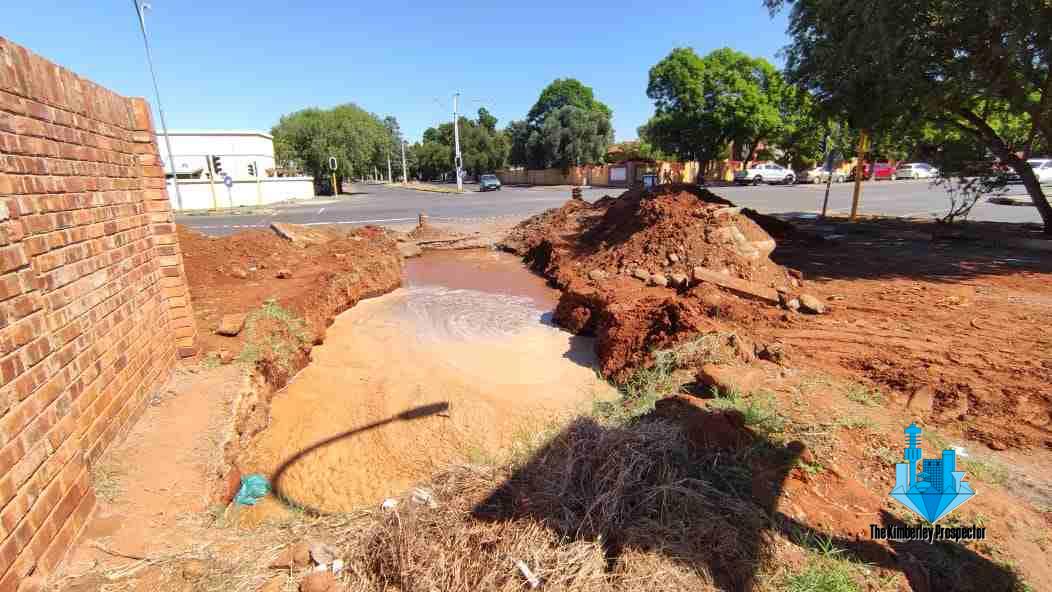Aangesien desperate inwoners van Kimberley nou blykbaar watertenkers kaap, doen die Demokratiese Alliansie (DA) in die Noord-Kaap ‘n beroep op die Sol Plaatje-munisipaliteit om, in samewerking met die provinsiale en nasionale rampbestuursentrums, die watersituasie in Kimberley tot ‘n plaaslike ramp te verklaar.
Luister in Afrikaans
Ockert Fourie, raadskud aan die Sol Plaatje-munisipaliteit, sê terwyl sommige inwoners af en toe water in hul krane het, is daar ander wat tussen vyf en 14 dae lank nog nie ‘n druppel water gehad het nie.
“Terwyl watertrokke gemeenskappe bedien, voorsien die watervoorsiening nie in die vraag na water nie. Mense stoot en baklei dus om hul houers vol te maak.”
“Die DA dra kennis van twee geleenthede waar gemeenskapslede watertenkers, wat op pad na ander plekke was, basies gekaap het sodat hulle hul eie waterhouers kon volmaak. Een voorval was in die Greenpoint-omgewing en die tweede was in die boerderygebied aan die ander kant van die 3SAI-weermagbasis.”
“Die watersituasie is duidelik buite beheer. Mense het water dringend nodig. Dit is tyd dat Sol Plaatje erken dat hulle ‘n ramp op hande het.”
“Sol Plaatje het ongetwyfeld hulp nodig om watervoorsiening aan alle gemeenskappe in en om Kimberley op ‘n volhoubare manier te herstel, en ook om bykomende water aan behoeftiges te kan voorsien.”
“Die munisipaliteit het ook hulp nodig om sy gebeurlikheidsplanne te midde van hierdie krisis te implementeer. Die munisipaliteit moet dus dringend met die Suid-Afrikaanse polisiediens (SAPD) skakel om polisiebegeleiding van die watertrokke aan te vra. Ons kan nie ‘n situasie duld waarin bestuurders in gevaar gestel word nie, en waardeur sekere gemeenskappe benadeel word omdat watertenkers hulle nooit bereik nie.”
“Verder, in gevalle waar gemeenskappe wel toegang tot watertenkers het, is die proses so chaoties dat nie almal ‘n billike kans kry om hul houers vol te maak nie. Die desperaatheid vir water het ook gelei tot ‘n situasie waar gemeenskappe die koronavirus-regulasies laat vaar het, wat aanleiding gee tot die bykomende risiko dat die gebruik van watertoegangspunte in superverspreidingsgebeurtenisse kan ontaard. Watervoorsiening via watertenkers moet dus gelei word deur ‘n veilige en ordelike proses,” sluit Fourie af.
Sol Plaatje Municipality’s water wars demand disaster declaration
As Kimberley residents, desperate for water, have apparently taken to hijacking water trucks, the Democratic Alliance (DA) in the Northern Cape is calling on Sol Plaatje municipality, in conjunction with the Provincial and National Disaster Management Centers, to declare the water situation in Kimberley a local disaster.
Listen in English
Ockert Fourie, Cllr of the Sol Plaatje Municipality, says while some residents have had intermittent water in their taps, there are others who have not had a drop of water for between five and 14 days and counting.
“While water trucks are servicing communities, water supply fails to meet demand. People, therefore, push and fight to get their containers filled.”
“On at least two occasions that the DA is aware of, once in the Greenpoint area and the other in the farming area on the other side of the 3SAI Army Base, community members swooped on water tankers that were en route to other locations, helping themselves to water.”
“The water situation is clearly out of control. People are in frantic need of water. It is time that Sol Plaatje acknowledges they have a disaster on their hands.”
“Sol Plaatje clearly needs help to restore water provision to all communities in and around Kimberley in a sustainable manner, and also to supply additional volumes of water to those in need.”
“The municipality also needs help effecting its water contingency plans in the midst of this crisis. It must therefore urgently engage with the South African Police Force (SAPS) to request police accompaniment of the water trucks. We cannot tolerate a situation whereby drivers are placed in danger, and whereby certain communities are disadvantaged because water tankers never reach them.”
“Furthermore, in instances where communities do have access to tankers, the process is so chaotic that not everyone gets a fair chance at filling up their containers. The level of desperation for water has also seen communities abandon Covid-19 regulations, giving rise to the additional risk that the use of water access points could turn into super-spreader events. Water supply via tankers, therefore, needs to be guided by a safe and orderly process.”
